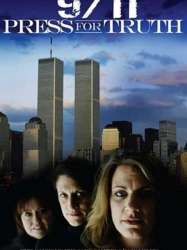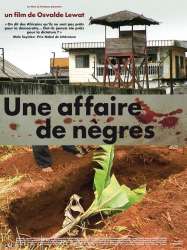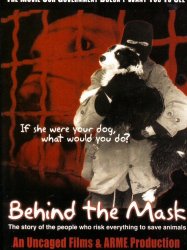Czechoslovakia 1968 is a american film of genre Documentary directed by Denis Sanders released in USA on 31 december 1969
Czechoslovakia 1968 (1969)

If you like this film, let us know!
Released in USA 31 december 1969
Length 13minutes
Directed by Denis Sanders
OriginUSA
Genres Documentary
Rating67%










Czechoslovakia 1968 is a 1969 short documentary film about the "Prague Spring", the Russian invasion of Czechoslovakia. The film was produced by the United States Information Agency under the direction of Robert M. Fresco and Denis Sanders and features the graphic design of Norman Gollin.
It won the Academy Award for Documentary Short Subject and in 1997, was selected for preservation in the United States National Film Registry by the Library of Congress having been identified as "culturally, historically, or aesthetically significant".
Comments
Leave comment :
Suggestions of similar film to Czechoslovakia 1968
There are 8 films with the same director, 8871 with the same cinematographic genres, 8197 films with the same themes (including 867 films with the same 3 themes than Czechoslovakia 1968), to have finally 70 suggestions of similar films.If you liked Czechoslovakia 1968, you will probably like those similar films :

A Time Out of War (1954)
, 20minutesDirected by Denis Sanders
Origin USA
Genres Drama, War
Themes Political films
Actors Corey Allen, Barry Atwater
Rating65%





Le film se déroule pendant la guerre de Sécession. Des soldats de l'Union négocient une trêve des combats avec les confédérés.

War Hunt (1962)
, 1h30Directed by Denis Sanders
Origin USA
Genres Drama, War, Action
Themes Politique, Political films
Actors John Saxon, Sydney Pollack, Tom Skerritt, Robert Redford, Gavin MacLeod, Charles Aidman
Rating62%





Near the end of the Korean War a new replacement, Private Loomis (Robert Redford) is assigned to an infantry company in the front line. He notices a quiet Private Endore (John Saxon) and is warned by others in the company not to speak to him. Once night falls, Loomis notices Endore in black face and dark clothing infiltrating enemy lines to gather information and spread terror amongst the enemy by killing enemy soldiers with his knife. Endore's odd ritual of drawing a circle around the body with his knife may indicate that he is, in fact, a serial killer. Company Commander Captain Pratt (Charles Aidman) lets Endore act independently.

State of Fear (2006)
, 1h34Directed by Pamela Yates
Genres Documentary
Themes Films about terrorism, Documentary films about law, Documentary films about war, Documentary films about historical events, Documentary films about politics, Documentary films about terrorism, Political films
Rating73%






Why We Fight (2005)
, 1h38Directed by Eugene Jarecki
Genres Drama, Documentary, Historical
Themes Documentary films about war, Documentary films about historical events, Documentary films about politics, Political films
Actors Gore Vidal, Frank Capra
Rating79%





Why We Fight describes the rise and maintenance of the United States military–industrial complex and its 50-year involvement with the wars led by the United States to date, especially its 2003 Invasion of Iraq. The documentary asserts that in every decade since World War II, the American public was misled so that the government (incumbent Administration) could take them to war and fuel the military-industrial economy maintaining American political dominance in the world. Interviewed about this matter are politician John McCain, political scientist and former CIA analyst Chalmers Johnson, politician Richard Perle, neoconservative commentator William Kristol, writer Gore Vidal, and public policy expert Joseph Cirincione.

The Flight That Fought Back (2005)
, 1h30Origin USA
Genres Drama, Documentary
Themes Films based on the September 11 attacks, Films about religion, Films about terrorism, Transport films, Aviation films, Documentary films about law, Documentary films about war, Documentary films about historical events, Documentary films about politics, Documentary films about religion, Documentary films about technology, Documentary films about terrorism, Political films, Films about Islam, Disaster films, Films about aviation accidents or incidents, Films about hijackings
Actors Greg Benson, Pej Vahdat
Rating73%






9/11: Press For Truth (2006)
, 1h25Origin USA
Genres Documentary
Themes Films based on the September 11 attacks, Films about religion, Films about terrorism, Transport films, Aviation films, Documentary films about law, Documentary films about war, Documentary films about historical events, Documentary films about politics, Documentary films about religion, Documentary films about technology, Documentary films about terrorism, Political films, Films about Islam, Dans un avion, Disaster films, Films about aviation accidents or incidents, Films about hijackings
Rating79%






Une Affaire de nègres (2009)
, 1h30Directed by Osvalde Lewat
Genres Documentary
Themes Films set in Africa, Documentary films about law, Documentary films about war, Documentary films about historical events, Documentaire sur une personnalité, Documentary films about politics, Political films
March 20, 2000, a decree by the President of the Republic of Cameroon set up an Operational Command Unit to tackle rampant banditry in the Douala region. The Unit introduced what amounted to round-ups: in one year, 1600 people disappeared or were killed. One year later, nine young men disappeared. The matter was submitted to the UN High Commissioner for Human Rights. The accused were found guilty of "failure to follow orders" and released but legal proceedings have not come to an end. The victims' families have to live between the desire for justice and the pressure for the crimes to be wiped out forever from the collective memory.

Behind the Mask (2006)
, 1h12Genres Documentary
Themes Films about animals, Environmental films, Films about terrorism, Documentary films about animal rights, Documentary films about law, Documentary films about war, Documentary films about historical events, Documentary films about politics, Documentary films about terrorism, Political films, Documentary films about nature
Actors Chris DeRose, John Feldmann, Kevin Jonas
Rating74%






The Blue Hills (2006)
, 59minutesGenres War, Documentary
Themes Documentary films about war, Documentary films about historical events, Political films, Documentary films about World War II
Rating76%






The Cats of Mirikitani (2006)
, 1h14Genres Documentary
Themes Films based on the September 11 attacks, Prison films, Films about racism, Films about religion, Films about terrorism, Transport films, Aviation films, Documentary films about the visual arts, Documentary films about racism, Documentary films about law, Documentary films about war, Documentary films about historical events, Documentaire sur une personnalité, Documentary films about politics, Documentary films about religion, Documentary films about technology, Documentary films about terrorism, Political films, Films about Islam, Documentary films about World War II, Disaster films, Films about aviation accidents or incidents, Films about hijackings
Rating81%





In 2001 Japanese American painter, Jimmy Mirikitani (born Tsutomu Mirikitani), and over 80 years old, was living on the streets of lower Manhattan. Filmmaker, Linda Hattendorf, took an interest and began
 Connection
Connection